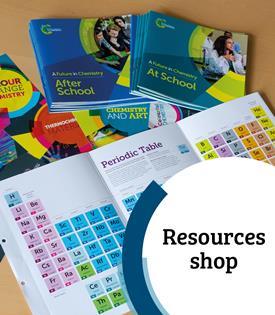All Resource articles – Page 16
-
 Resource
ResourcePractical videos | 14–16 years
Videos of core practical experiments for flipped learning, remote teaching or revision
-
 Resource
ResourceFinding a greener concrete
Use these differentiated, synpoptic worksheets to assess students’ recall of the properties and uses of materials
-
 Resource
ResourceHow is UV light used as a disinfectant?
Boost students’ literacy skills with some engaging cross-curricular science
-

-
 Resource
ResourcePractise decimals, significant figures and rounding
Use this activity to boost students’ data handling skills
-
 Resource
ResourceConservation of mass on dissolving and heating
Help students understand how mass is conserved when a substance is dissolved or heated
-
 Resource
ResourcePractical chemistry for NQTs - classroom resources
Classroom resources featuring activities from our Practical chemistry for NQTs professional development course for teachers
-
 Resource
ResourcePedagogical approaches - classroom resources
Classroom resources featuring activities from our Pedagogical Approaches to Chemistry Teaching professional development course for teachers
-
 Resource
ResourceMaterials chemistry - classroom resources
Classroom resources featuring activities from our Materials Chemistry professional development course for teachers
-
 Resource
ResourceRates of reaction - classroom resources
Classroom resources featuring activities from our Rates of Reaction Chemistry for NQTs professional development course for teachers
-
 Resource
ResourceCarbon chemistry - classroom resources
Classroom resources featuring activities from our Carbon Chemistry professional development course for teachers
-
 Resource
ResourceDeveloping and using models - classroom resources
Classroom resources featuring activities from our Developing and Using Models professional development course for teachers
-
 Resource
ResourceAcids and bases - classroom resources
Classroom resources from our Acids and Bases professional development course for teachers
-
 Resource
ResourceQuantitative chemistry - classroom resources
Classroom resources featuring activities from our Quantitative Chemistry professional development course for teachers
-
 Resource
ResourceAnalytical chemistry - classroom resources
Classroom resources featuring activities from our Analytical Chemistry professional development course for teachers
-
 Resource
ResourceEquilibria chemistry - classroom resources
Classroom resources featuring activities from our Equilibria professional development course for teachers
-
 Resource
ResourceRedox chemistry - classroom resources
Classroom resources featuring activities from our Redox Chemistry professional development course for teachers
-
 Resource
ResourceEnergy and change - classroom resources
Classroom resources featuring activities from our Energy and Change professional development course for teachers
-
 Resource
ResourceStructure and bonding post-16 - classroom resources
Classroom resources featuring activities from our Structure and bonding post-16 professional development course for teachers
-
 Resource
ResourceStructure and bonding pre-16 - classroom resources
Classroom resources featuring activities from our Structure and bonding pre-16 professional development course for teachers











